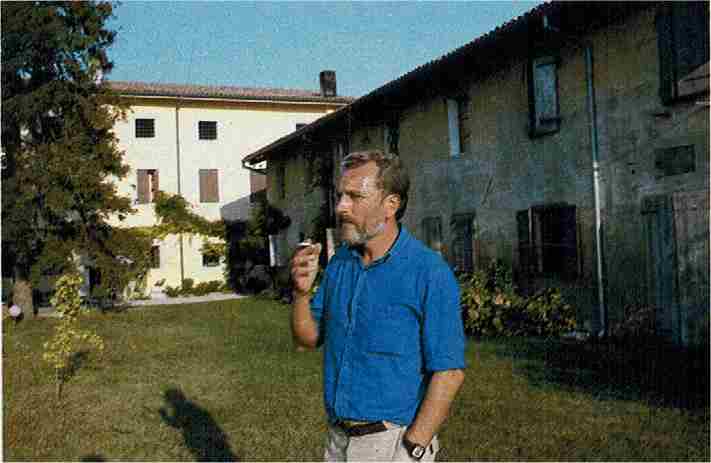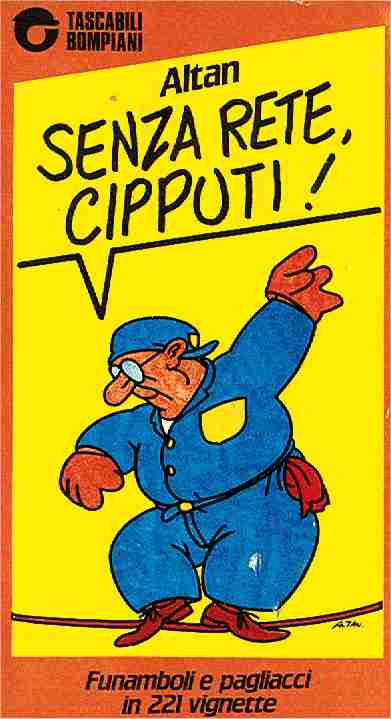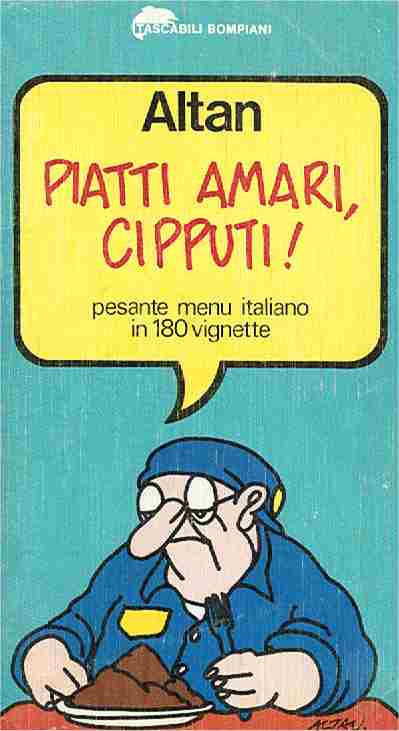|

 Francesco Tullio Altan is most
famous for two of his cartoon creations: Cipputi the communist
machinist, and Pimpa a puppy in a cartoon series for
children. Francesco Tullio Altan is most
famous for two of his cartoon creations: Cipputi the communist
machinist, and Pimpa a puppy in a cartoon series for
children.
He was studying to become an architect but had always drawn cartoons
and caricatures for his family and friends. It was when a
publisher pressed him to make his cartoons more topical that his hobby
became a career.
Despite his fame, he lives a private life in the Veneto, in his
grandfather's ancestral home. He is an introverted, chain-smoking,
modest man who tries not to judge or make political or social
pronouncements.
There are many who used to seek him out to get his blessing for one
movement or another. But his continual refusal to be used as a
mouth-piece or a buttress for any cause has made them stop coming.
He sees the role of the satirist, or political cartoonist, as one who
can provide an alternate point of view to a pressing issue of the
day. He strives to seed doubt and promote discussion on those
issues, not to resolve them.
Certainties frighten him, in his speech, his thoughts, and in his
work. He tries to represent a consistent and clear point of
departure, the point of view of Cipputi, for example, and then show how
reality is viewed from that perspective. The clarity of his view,
and the ability to put that together with the telling image, is his
talent.
 Today he believes there is political satire everywhere you look, but
it is often lacking a unique view point. The views have become
homogenized, creating a lack of variety. It's the variety of
opinion that provides the contrasts needed for comedy. So as a
result, today's satire is less funny, less biting than in previous
decades. Today he believes there is political satire everywhere you look, but
it is often lacking a unique view point. The views have become
homogenized, creating a lack of variety. It's the variety of
opinion that provides the contrasts needed for comedy. So as a
result, today's satire is less funny, less biting than in previous
decades.
To stay up-to-date, he reads the papers, watches a bit of TV, and
listens to a lot of radio. Having the radio on in the background
helps him fish out the catch phrases of the day, and the pressing issues
that are pressed just that bit too much. He can then use the
phrase and the overexposed issue in his humor.
He tries to offer humor, satire, and even sarcasm and irony in his
cartoons, but he is famous for not resorting to cynicism or to preaching
a point of view.
Altan does not want to form opinion. He only aims to foment
discussion of opinions and a rethinking of opinions. The strongly
held opinion of the day makes him uncomfortable because he is keenly
aware that it is transient, and will probably be the discarded idea of
tomorrow, and was the ignored idea of yesterday.
The previous points are summarized from the article: Altan
societŕ, in Europeo magazine, from April 14, 1989.
Copyright photo of Altan: Europeo 1989.
|

